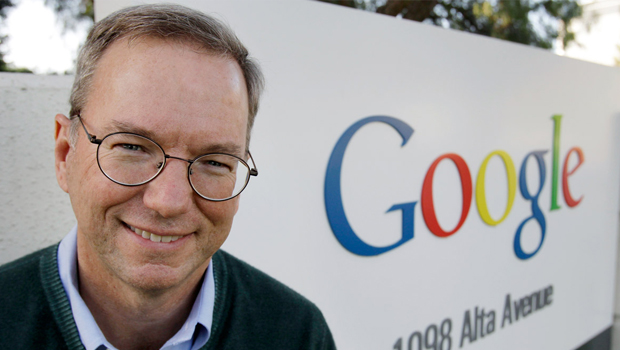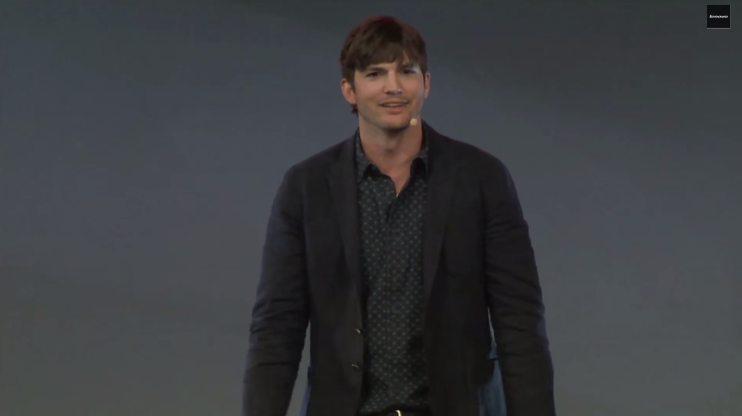Ashton Kutcher is more than just an actor
Ashton Kutcher is more than you may be aware of. We all know Ashton Kutcher from the movies and fondly remember some of his greatest tv moments including playing Michael Kelso on ‘That 70’s show’. However not a lot of people know Ashton Kutcher, the product engineer of Lenovo and his passion for technology and what makes a great product. Mr. Kutcher has invested in a number of tech companies (Airbnb, Uber) in the past that all aspire to solve a problem. A problem that is on the edge of technology. Something that has the power to fascinate us and explore the opportunities of creating a digital environment tailored to our needs. The goal: solving a real-life scenario.
Ashton Kutcher gave an inspiring talk at TECHmyway in Sydney, Australia and opened up about what makes a great question, time management and advices he and his folks received. I will break down the story first and then give you some insight on how this may be valuable for you as a Product Manager. If you haven’t seen his talk yet make sure to do so. Fast forward to 1:24:00.
‘What constitutes a great question?’ and the concept of Time Management
His intro revolved around the traditional saying ‘there is no such thing as a dumb question’. Ashton put a veto on this logic and pointed out that there sure is such thing as a dumb question.
He went on to talk about his fiancée’s new movie ‘Jupiter Ascending’, which is about time being the most valuable resource available. Ashton was curious what kind of questions journalists would ask Mila at a press day and quickly figured the most interesting question would be ‘In your universe what is the most valuable resource to you?’ Mila Kunis said time. To Ashton’s surprise that question never came up and reporters were more concerned about her dress than to ask questions that open up a conversation.
There are surely questions that are not worth asking because you can simply find the answer on Wikipedia and on the internet. For Ashton Kutcher “great questions expose problems”. He nails down the essence of great products and the importance to look beyond the boundaries and investigate. “Problems are the seed to the solutions” he adds.
Ashton Kutcher: Technology is build upon great questions
I agree with him. Let me introduce to you Flow – a magical wireless controller, which is fully programmable to suit your graphic design, video editing needs and more. You can connect it to your computer and other devices. Flow is compatible with a number of programs including Final Cut Pro, Photoshop and YouTube. All you have to do is simply set up shortcuts for different controls within the program.
Flow is investigating the necessity to thrive away from keyboard and mouse and facilitate your hand to help create things more efficiently and save you time. It is a real problem that scratches on the edge of technology and directly serves Ashton Kutcher’s premise that you should “build technology from great questions”.
The single most important thing that defines success of a great business is time Ashton points out and for him “time exists on two vectors”. Longevity and the wish to continuously try to extend our life and the other being quality. Individuals are focused on improving their standard of living and thrive to fill their life with enjoyment and entertainment. I would extend his theory by adding a third one, which is loosely based on the second vector quality – identification. Identifying with a product is a crucial component and paves the way for longer investment. It goes along with investing time in the first place to get to know the product and then by receiving time back as the product saves you time on certain activities. Along with this investment and saving time comes excitement and the goal to improve your life. With the wish to improve your life also comes the necessity to identify with the product. If you don’t identify with the product, there is no excitement and you don’t perceive it as valuable to you. So identification goes along with quality and longevity.

We can transfer this mind set and apply it to our example of Flow. They had great questions in mind when they came up with the concept of Flow and then capitalized on this. For the user of Flow the product improves the efficiency of working, therefore saves time and it additionally creates a sense of excitement working with a wireless controller. Along with that also happens the identification with the product. You can identify with the wireless controller as it speeds up your creation process but most importantly lets you interact and use your hand more freely. This is what successful products are all about. Ultimately this is what Product Managers should look into when exploring new ideas and concepts of how to improve products and make them more valuable to their users. Ask yourself a question, if the answer is no then that is “the playground for a rebel spirit” Ashton says. Try to solve a problem and investigate the dimensions that are attached to it.
Advice – the source of inspiration and dedication
Let’s explore what Ashton identified for himself as a magnificent question – “What’s the best advice you’ve ever received to get you to where you are?”.
He continues that receiving great advice only happens when you ask proactively, without painting a picture of the situation. Do not make it clear to people you are in a crisis as this will influence them in formulating a good advice that can help you grow. For him it is all about building your own library of great advice, which you can access in times of a crisis and when you really need it to overcome obstacles and roadblocks. Product Managers will be able to identify with this. As a PM you are faced with challenges and decisions to make on a daily basis. It can get rough sometimes and especially working for a startup you will find that a library of accessible advice is not the worst thing to have. It should inspire you and keep you focused and dedicated. If your business is trying to solve a real user problem and you have the resources to make it happen, do not let yourself be discouraged by temporary roadblocks and obstacles. You will be faced with many along the way.
Let’s find out what some of Ashton’s folks said which the best advice they’ve ever received is
Mila Kunis (actress)
“Don’t let your ego get in the way of asking for help”
People sometimes can’t see the forest for the trees. As a Product Manager do not be convinced that your predictions are automatically right and that the feature or product you built is the ultimate answer to a problem. You might miss an important aspect. Be open to ask people for help and get their input. After all it is about the users and not just you.
Taylor Swift (musician)
“Keep your hopes high and your expectations low. You are not entitled to anything, but there’s nothing that you can’t earn. And most importantly, enthusiasm can protect you from absolutely anything”
You may not be a fan of Taylor Swift’s music but you can’t deny that this is some seriously great advice. Always believe in the product you are developing but stay realistic. Every Product Manager is proud of their product, but you have to be prepared for the case that it may not be commercially successful right from the start. What’s important is that you are enthusiastic and keep your spirit alive. Be convinced that what you are working on is meaningful and don’t loose sight of your goals. Early adopters will criticize your product and there will be doubters but take it as a chance to grow and optimize your products.
Bradley Cooper (actor)
“Be yourself…Knowing that we all have ourselves and all we have is ourselves, our uniqueness. That is what we can use to cultivate in order to create…Just be yourself”
I think Bradley hits a nerve with that. As a Product Manager you need to be yourself. Don’t try to be someone else or follow along. Making compromises is part of the game but stay true to yourself. Most great decisions happen because people follow their instincts. Historical data, benchmarking and browsing for opportunities in the market are essential, however in the end you should trust your instincts and be yourself. Don’t make a decision because you think someone else would make that same decision. You could be wrong.
Chris Rock (actor and comedian)
“1. People that can’t listen can’t lead…2. One of the keys to success is the ability to listen to people that you know that you are smarter than”
That is an extremely valuable advice and absolutely applicable to the work environment of a Product Manager. People that can’t listen can’t lead a team effectively. If you don’t listen to the people within your team you will fail. Communication is key and you need to keep everyone happy on the team. Part of leading a team to a success is to share the same vision.
The second advice is based on the fact that you should be open for opinions, even if you think asking that particular person is not worth it. Ashton confirmed that you may miss something if you are not willing to discuss. You will be surprised, do not automatically assume you are smarter than someone else.
Eric Schmidt (Executive Chairman of Google)

“Always return phone calls, take the time, if you put good energy out it comes back, whenever possible say yes, life is just who you travel with”
Eric suggests to return phone calls at all times and he is right. You do not know what kind of opportunity can come out of a conversation if you do not investigate.
Saying yes to everything is wrong but wherever possible you should say yes to find out what saying yes could mean for you and the business. Maybe you say yes and give the green light for your engineer to continue work on a feature but at the same time you are aware that saying yes holds risks and perception is unclear. In the business world decisions do not come easy and you will make wrong decisions. Saying yes wherever possible is the right way to go if the outcome is promising and relevant to your business.
The last point Eric mentions is ‘life is just who you travel with’ and that is a great advice and perfect way to end this post. Your personal and professional success is dependent upon your team and who you work with. If you work with people, who are not passionate enough or can’t fully capitalize on their potential despite their talent, you will get to your goals slower. This also includes not having the willingness to adaption. It is all about who you spend your time with and what you make out of it.
I would like to close with an advice that Ashton Kutcher identified as the most valuable advice he ever received ‘There is no substitution for hard work’.
Share this Post


Pingback: Flic - This magical wireless button can do almost anything()